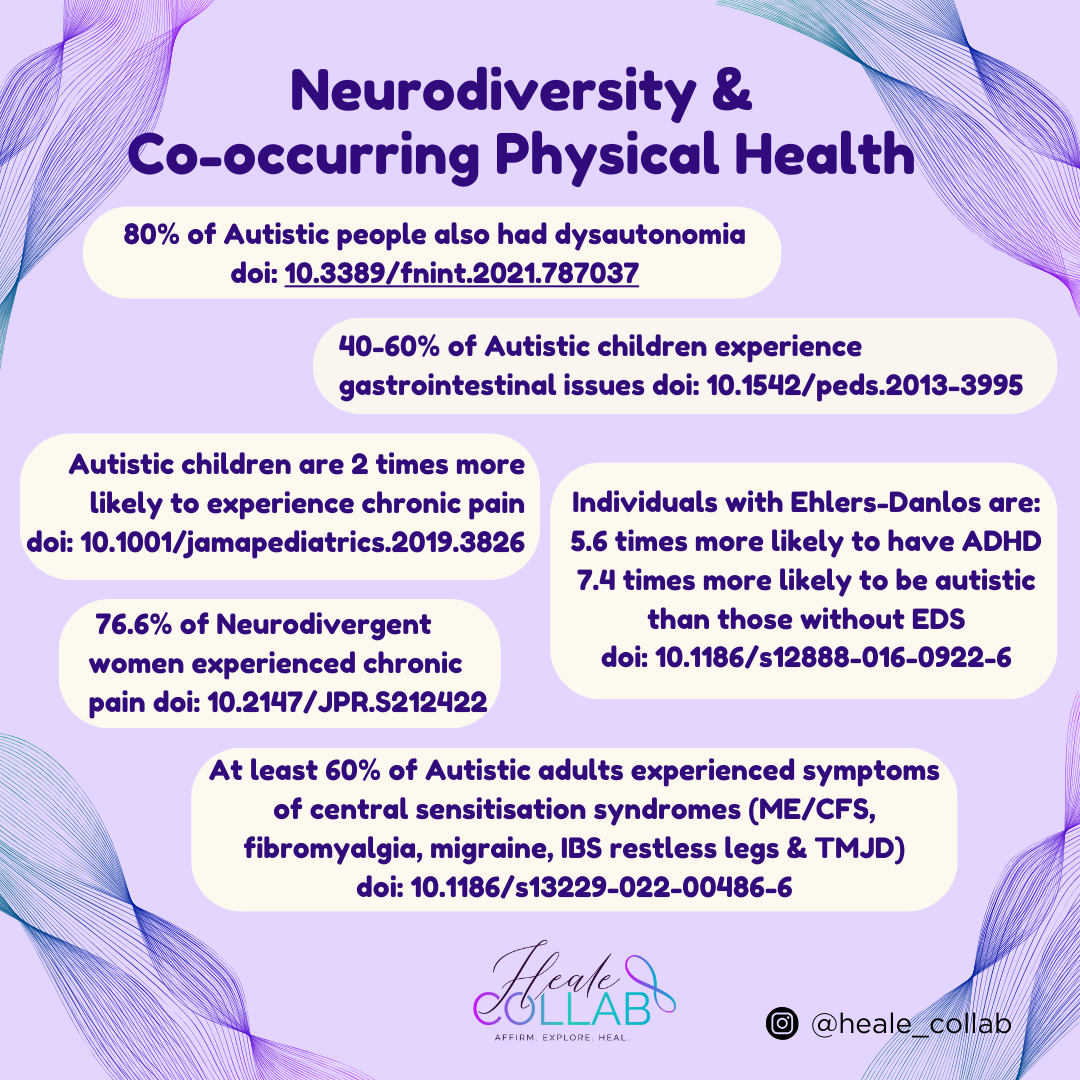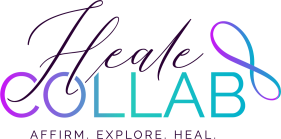Conditions that commonly co-occur with neurodiversity
Recent studies have shown that there are emerging links between Hypermobility, Neurodivergence, Dysautonomia, Fibromyalgia and Pain. Individuals with a diagnosis of Autism, ADHD or tic disorder (Tourette syndrome) demonstrated elevated levels of hypermobility along with significantly more symptoms of pain and dysautonomia. Neurodivergent individuals also commonly experience co-occurring Anxiety, Depression, Eating Disorders and Substance Use Disorders, than the general population. For more information regarding the links between these conditions please refer to my article ‘Co-occurring Conditions, Misdiagnosis & Barriers to Healthcare: The Reality for Neurodivergent Individuals.’
For information regarding specific conditions that commonly co-occur with Neurodivergence please access the information provided on this page.


Hypermobility MD or Bendy Bodies Podcast
Neurodivergence occurs at a much higher rate amongst people with hypermobility disorders. One guest Jessica Eccles, MD, specialist in brain-body neuroscience discusses the importance of recognizing the link between hypermobility and neurodivergence and dives into proprioceptive issues and dyspraxia.
The Link Between Hypermobility and Autism
Hypermobility is a condition that affects many Autistic people. It is characterised by overly flexible joints and muscles that may lead to chronic pain. Those with hypermobility are at risk of suffering from joint and muscle instability, fatigue and poor posture.
Helping connect and support people in Australia with Ehlers-Danlos Syndrome and Hypermobile Spectrum Disorders.
A non-profit that seeks to improve the lives of individuals living with autonomic nervous system disorders through research, physician education, public awareness and patient empowerment programs.
Committed to improving the quality of life for people with POTS through research, advocacy, and support. Information and support from real people in your community.
The leading national patient organisation for ME/CFS in Australia. Empowering people with ME/CFS and Long COVID to manage their symptoms by providing up-to-date and evidence-based information for patients and caregivers.
A UK-based charity supporting people affected by Mast Cell Disease. Founded and run by people who have MCAS or care for someone with MCAS.
Supporting people with arthritis and musculoskeletal conditions for over 50 years. Believing in the benefit of ‘real people helping real people’, it’s a place for those living with musculoskeletal conditions to get informed and get supported. A good resource regarding Fibromyalgia, a common condition in which people experience symptoms that include widespread pain and tenderness in the body, often accompanied by fatigue and problems with memory and concentration.
A nationally accredited charity that raises awareness, educates and funds research for endometriosis. Endometriosis Australia has been promoting awareness, pursuing advocacy, producing resources and information, and highlighting the impact of endometriosis in the workplace for the past 10 years.
Premenstrual Dysphoric Disorder (PMDD)
When premenstrual some women experience debilitating mood or psychological symptoms that interfere with their daily lives and even prevent some women from holding down a job. This is known as premenstrual dysphoric disorder (PMDD).
Eating Disorders Neurodiversity Australia
Focused on building neurodiversity-affirming, accessible, and inclusive eating disorder healthcare. A not-for-profit organisation whose members are neurodivergent (autism, ADHD, dyslexia, dyspraxia, synesthesia, giftedness, dyscalculia) with lived or living experience of an eating disorder.
The Unexplored Link Between Autism and Substance Abuse
Many autistics resort to substance use as a way of relieving anxiety and coping with insomnia, mutism, and sensory dysregulation. Social pressure may cause someone to experiment with drugs or alcohol as a way to fit in with peers.

Acknowledgment of Country
Heale Collab acknowledges the Bunurong people of the Kulin Nation who are the Traditional Owners of the lands on which we work and learn. The Bunurong people always have and always will belong to the Werribee Yalook (river), stars, hills and red clay of this Country. We recognise their continued connection and role caring for Country over thousands of generations. We pay respect to their Elders past and present who continue to preserve and protect Country, culture and community.
